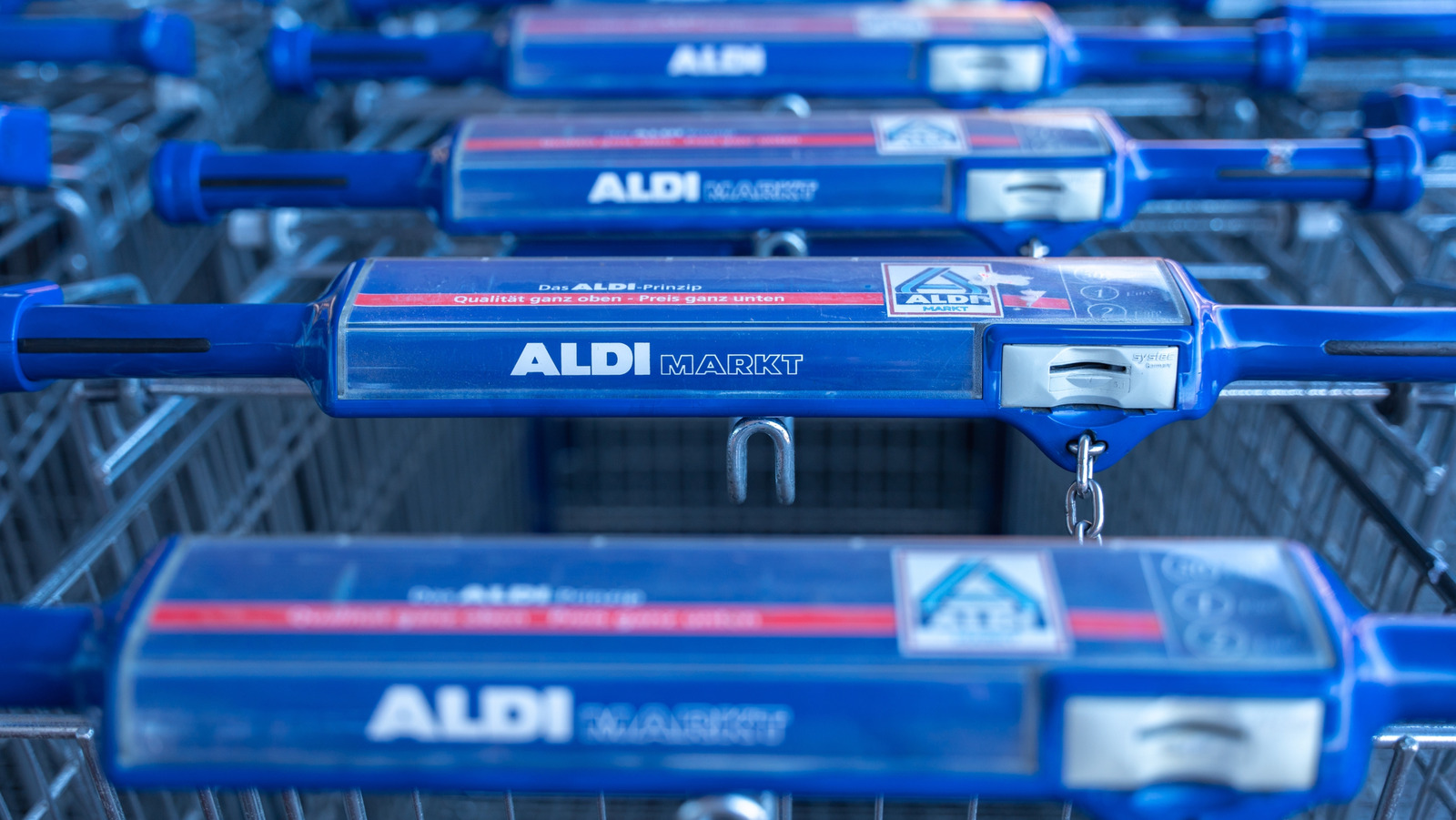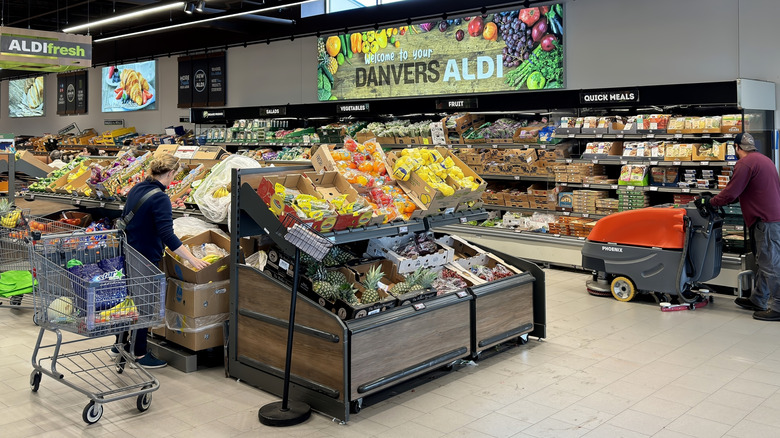Aldi has quickly risen up the ranks as one of the world’s leading grocery stores, competing against supermarket bigwigs such as Lidl, Whole Foods, Trader Joe’s, and Stop & Shop. But what makes the German-based brand different than the others? One word: efficiency. Everything from how the food emporium is set up to the employees on staff is centered around keeping costs low and allowing shopper to move swiftly.
Aldi keeps the line moving through several tactics. For one, it slashes labor and shelving fees by exhibiting products in the original containers. The company also opts to keep its staff small for each individual store. However, the training process for employees is extensive and workers are paid a higher-than-average income.According to Aldi’s official website, there are more than 2,400 stores across 38 states with over 45,000 employees.
In addition, the brand’s no-frills shopping experience allows for customers to put their own items away, thus saving time and work costs. Each store is also smaller in size for a quicker and more efficient shopping experience. The marketplaces are uniquely designed to omit wild and colorful store displays and keep the focus on inexpensive goods. Aldi has shorter operating hours than most supermarkets; the retailer chooses to close during slower shopping periods to save money. Another strategy that allows for Aldi to stay organized is the use of massive barcodes slapped onto their merchandise. This speeds up time at the checkout counter and lets both customers and workers find the code more easily.
What makes Aldi run like a well oiled machine?
With the increase in food prices in the current socio-economic landscape, shoppers are looking for ways to save money without sacrificing quality. Anyone who has visited an Aldi store will tell you that it does things a little bit differently. With fast cashiers who are usually seen sitting at the register, its prices are pretty cheap when compared to other retailers. Products such as bread, eggs, milk, beef, chicken, and more are typically lower in cost at Aldi.
Another strategy Aldi uses to subsidize costs, is that it never plays music in any stores to save the company money from licensing fees. And as to why cashiers sit while ringing up items, is because it allows them to scan the products faster. Customers also must drop in a quarter to rent a shopping cart, however, they get it back once the cart is returned. This helps keep things running as cashiers don’t need to spend as much time gathering the wagons.






